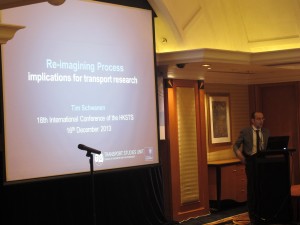Call for Papers, Annual Meeting of the Association of American Geographers (AAG), Los Angeles, California, April 9-13, 2013
ECOLOGIES OF WELL-BEING
Organised by David Conradson and Tim Schwanen
Well-being has attracted significant academic and political attention in recent years. Researchers in psychology, economics, public health and development studies have sought to conceptualize, measure and explain variations in well-being between individuals and groups. In the political arena, several western governments have commissioned reports on well-being, including France, Canada and Britain, and some countries are seeking to develop national well-being accounts.
Geographers are also engaging with well-being, both conceptually and through empirical investigation (Atkinson et al, 2011; Fleuret and Atkinson, 2007; Kearns and Andrews, 2010). To date, this work has included relatively extensive, quantitative investigations (e.g. Ballas and Tranmer, 2012) as well as local, more qualitatively oriented studies (e.g. Panelli and Tipa, 2007). A common thread has been an interest in the ecological determinants of individual and collective well-being. This is about how the ‘natural’, built and social environments as well as the cultural and spiritual context in which people are situated shapes their happiness, flourishing, health and capabilities.
Much of this work has significant policy implications (e.g. regarding greenspace and urban design). It also brings something distinctive to the established traditions of inquiry within social, health and medical geography regarding inequality, poverty, deprivation, exclusion and disease. At the same time, the connections between geographical work on well-being and critical thought regarding equity, governmentality and the global financial crisis would seem to warrant further exploration.
This session is an opportunity to continue the conversation regarding how best to understand and investigate the environments which support human well-being. We seek contributions that engage with but are not limited to the following topics/issues:
• Conceptualising ecologies of well-being
• The social and environmental determinants of well-being
• Well-being and place across the life course
• Mobility and well-being
• Flourishing and well-being
• Critical analyses of the contemporary western emphasis on well-being and happiness
• Approaches which integrate quantitative and qualitative analyses of well-being
• Well-being and (critical) GIS and spatial analysis
• Connections between emotional geographies and well-being
• Participatory research approaches that seek to support social and community well-being
• Cultivating spaces and practices of well-being: a 21st century necessity?
Please email a 250 word abstract and/or expressions of interest to David Conradson (david.conradson@canterbury.ac.nz) and Tim Schwanen (tim.schwanen@ouce.ox.ac.uk) by Friday 5th October, 2012.
Successful submissions will be confirmed by Friday 12th October 2012 and will be expected to register and submit their abstracts online at the AAG website by October 24th 2012. Please note that a range of registration fees will apply and must be paid before the submission of abstracts.
References
Atkinson, S., Fuller, S. and Painter, J. (eds) (2012) Well-Being and Place. Aldershot: Ashgate.
Ballas, D. and Tranmer, M. (2012). Happy people or happy places? A multilevel modelling approach to the analysis of happiness and well-being. International Regional Science Review 35(1), 70-102.
Fleuret, S. and Atkinson, S. (2007). Wellbeing, health and geography: A critical review and research agenda. New Zealand Geographer, 63, 106-18.
Kearns, R. and Andrews, G. (2010). Geographies of Well-Being, in The Sage Handbook of Social Geographies, edited by S.J. Smith, R. Pain, S.A Marston and J.P Jones III. London: Sage, 309-28.
Panelli, R. and Tipa, G. (2007). Placing well-Being: a Maori case study of cultural and environmental specificity. EcoHealth, 4, 445-60.

